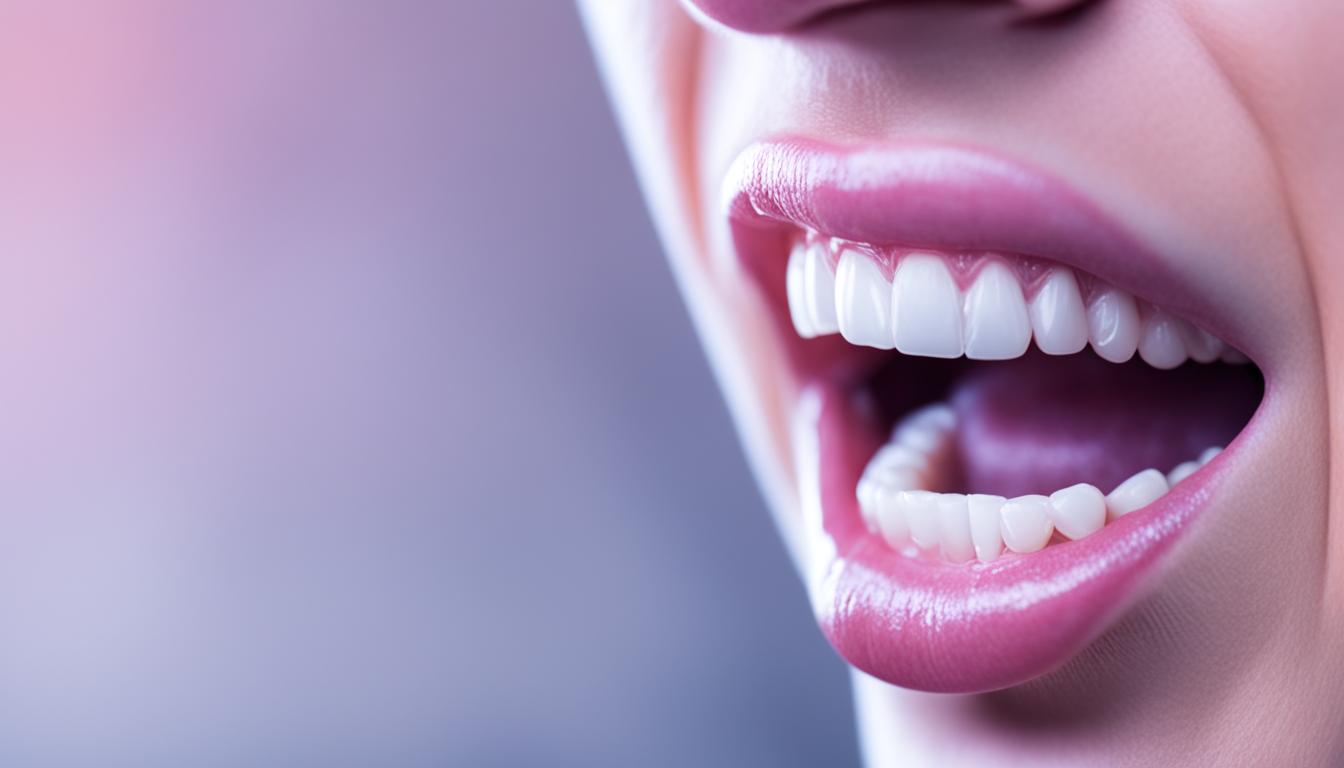Thrush oral, or oral candidiasis, causes white or yellow bumps by a yeast infection. It’s common in infants and toddlers, affecting adults too. You might see white or yellow patches inside the mouth, feel soreness or burning, and have a dry mouth.
If not treated, thrush can move to the esophagus. This can cause pain when swallowing and fever. An overgrowth of Candida albicans causes it, linked to weak immune systems and certain medications.
Doctors diagnose oral thrush by looking in your mouth and may take a biopsy. Treatments range from antifungal medications to home remedies like saltwater rinses. Stem cell therapy is a new approach that might bring relief.
Key Takeaways:
- Thrush oral causes white or yellow bumps in the mouth from a yeast infection.
- It affects both infants/toddlers and adults.
- Symptoms include white or yellow patches, soreness/burning, dry mouth, and difficulty swallowing.
- It’s due to an overgrowth of Candida albicans.
- Diagnosis requires examining the mouth and possibly a biopsy.
- Treatments involve antifungal medications or home remedies.
- Stem cell therapy shows promise in providing relief.
Causes and Transmission of Oral Thrush
The main cause of oral thrush is too much Candida albicans in the mouth. This can happen for a few reasons:
- Weakened immune system: Health conditions or certain drugs can weaken our immune systems. This ups the chance of getting oral thrush.
- Medications: Taking certain drugs, like antibiotics, can throw off the mouth’s natural way of keeping fungi in check. This leads to too much Candida albicans.
- Cancer treatments: Chemotherapy and radiation can lower our bodies’ defenses. This makes us more likely to get oral thrush.
- Underlying conditions: Stuff like diabetes can help Candida albicans grow, creating a perfect environment for oral thrush.
There are also many risk factors for getting oral thrush more easily:
- Dry mouth: Not enough saliva can make it easier for Candida albicans to overgrow.
- Anemia: This condition can make our immune system weaker. That makes oral thrush more of a threat.
- Use of corticosteroids or immunosuppressants: These drugs can lower our immune responses. This higher odds of getting oral thrush.
- Smoking: Smoking can weaken our immune system. It also helps Candida albicans grow, making oral thrush more likely.
- Wearing dentures: If dentures don’t fit right or are not cleaned well, they can hold Candida albicans. This can cause oral thrush.
Oral thrush can move from one person to another by direct touch, like kissing. It can also affect other body areas like the throat or genitals. Women with yeast infections when giving birth can pass the fungus to their babies. Infected babies can then give oral thrush to their mothers during breastfeeding.
But, you can also get oral thrush without catching it from someone else. Candida albicans is everywhere in our environment.
Diagnosis, Treatment, and Prevention of Oral Thrush
When a doctor looks for oral thrush, they check the mouth for white or yellow patches. Sometimes, they need to do a biopsy to be sure.
Treatments include antifungal drugs which are taken for 10 to 14 days. For harder cases, stronger medicines like amphotericin B may be needed.
Along with medicine, home remedies and changes in lifestyle can help. Good oral hygiene, soft toothbrushes, and saltwater mouth rinses can make a difference. It’s also wise to avoid mouthwashes with alcohol, replace toothbrushes often, and clean dentures well. Lowering sugar and carb intakes may help too.
Addressing underlying health issues, like diabetes, is key to fighting oral thrush. For those with cancer or getting stem cell treatments, using antifungal drugs as a prevention step is common. A mix of good habits and timely treatment is the best way to handle oral thrush.

